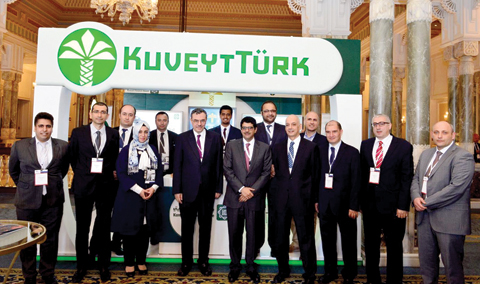KUWAIT: HH the Prime Minister Sheikh Dr Mohammad Sabah Al-Salem Al-Sabah met with editors-in-chief of local newspapers and media representatives at Seif Palace, accompanied by Minister of Information and Culture Abdulrahman Al-Mutairi, Head of the Prime Minister’s Diwan Abdulaziz Dekheel Al-Dekheel and senior state officials. Kuwait Times was represented by Deputy Editor-in-Chief Abdullah Boftain.
During the gathering, HH Sheikh Dr Mohammad expressed gratitude for the attendees’ response to the invitation, emphasizing the significance of national holidays, remembrance of martyrs and loyalty to the country, adding such meetings will continue. He provided insights into the government’s work program, which is nearing completion and will be presented to the National Assembly as per constitutional procedures. The program revolves around three pillars: Justice, security and sustainability.
The prime minister emphasized the blessings of security, safety and good governance, rooted in an open political atmosphere that upholds justice, participation and accountability. He acknowledged the bold and transparent speech delivered by HH the Amir Sheikh Mishal Al-Ahmad Al-Jaber Al-Sabah, emphasizing HH the Amir’s role as the guardian of the authorities responsible for the nation’s security and citizens’ well-being.
Addressing the legislative roadmap, HH Sheikh Dr Mohammad affirmed alignment with the government’s work program and expressed eagerness to collaborate with the National Assembly to advance legislative initiatives swiftly. He said it is normal the Al-Sabah family, like any other family worldwide, may experience conflicts, but affirmed their resolution through wisdom and collaboration within the family.








HH Sheikh Dr Mohammad recognized the impossibility of sustaining the welfare state solely on depleted natural wealth. Plans to transform depleted natural wealth into renewable resources, focusing on intensive investment in human capital and the use of technology and artificial intelligence, were outlined. The prime minister highlighted the optimal exploitation of Kuwait’s unique geographical location, leveraging population density and the proposed Gulf railways project.
He expressed confidence in Kuwait’s potential to become a hub, especially with its intellectual capital, financial resources and conducive environment. He discussed the development potential of the Northern Zone, envisioning it as a center for international universities, hospitals and potentially Kuwait’s own ‘Wall Street’.
There was an emphasis on addressing imbalances in public sector wages, economic spaces in the private sector and subsidies. The commitment to supporting small and medium enterprises (SMEs) and preparing for an increase in the labor market was highlighted. HH Sheikh Dr Mohammad proposed reforming subsidies, ensuring fair distribution with a focus on supporting the middle class.
“It is expected that more than 300,000 citizens will enter the labor market during the next 10 years, and the public sector will not be able to absorb this number, which requires the participation of the private sector. Subsidies consume more than 20 percent of the state’s general budget, and I find that it is not fair that the able and the needy are equal in obtaining these subsidies,” HH Sheikh Dr Mohammad said.
“The middle class must have the lion’s share of the support, while the high-income class can give up part of this support in favor of those who need it most. The government’s work program aims to reform and address the disparity in public sector wages through the (strategic payroll alternative) without prejudice to the acquired rights of those in service,” he added.
Plans for internal security initiatives to combat organized crime, drug trafficking and human trafficking were discussed. Kuwait’s commitment to maintaining an active role in external security amid regional challenges was underlined. Anticipation of foreign tours within the Gulf Cooperation Council countries to promote regional stability was mentioned. The commitment to strengthening Arab, Islamic and international relations at all levels was affirmed.
“At the level of external security, Kuwait is keen to continue its active role in light of the circumstances we are experiencing random wars, especially the heinous genocide to which our brothers in Palestine are subjected, which puts the security and stability of the region at risk,” HH Sheikh Dr Mohammad warned.
“There will be many foreign tours to the countries of the Gulf Cooperation Council, which were initiated by His Highness the Amir Sheikh Mishal Al-Ahmad Al-Jaber Al-Sabah with a visit to the Kingdom of Saudi Arabia, which resulted in the joint statement and the honest expression it contained that we all aspire to stability in the region,” he said.











